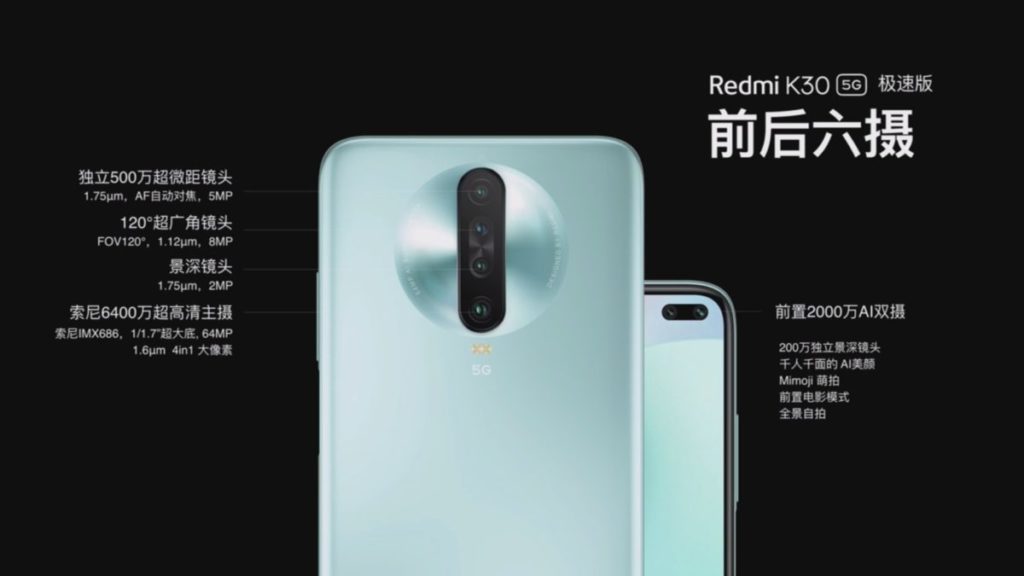With the launch of the new Qualcomm Snapdragon 768G which will be featured on the Xiaomi Redmi K30 Racing Edition, Qualcomm aims to cover as many price/performant points as possible.
The Snapdragon 768G is the most powerful 700-series chipset before you move up to their flagship options, and the price jump to the Snapdragon 865 is significant.
So how much performance difference is there? And what about last years superb SD855+ which offers a more attractive price point for someone looking at flagship performance without the cost associated to 5G.

CPU
One of the big differences between a flagship chipset and a mid-range model is the CPU layout. The flagship models will use 4 powerful cores then 4 efficient cores, while mid-range will typically be 2×6.
In the case of the SD865 this uses the latest Arm Cortex A77 based cores in the following arrangement:
- 1x Arm Cortex A77 @ 2.84GHz
- 3x Arm Cortex A77 @ 2.42GHz
- 4x Arm Cortex A55@1.80GHz
The Snapdragon 855 Plus uses the older A76 cores, but the Prime core is clocked a little higher than the Prime of the A77:
- 1x Cortex A76 @ 2.96GHz
- 3x Cortex A76 @ 2.42GHz
- 4x Cortex A55 @ 1.80GHz
Then the new Qualcomm Snapdragon 768G uses the same design as the SD765 but increases the core frequencies:
- 1x Cortex A76 @ 2.8GHz
- 1x Cortex-A76 @ 2.4GHz
- 6x Cortex-A55 @ 1.8GHz
So from the get-go, we can see that the Snapdragon 768G is a fair bit behind the Snapdragon 855 Plus in the overall specification
GPU
Comparing the GPU spec is a little harder as Qualcomm doesn’t reveal too much here. It is reported that the Snapdragon 768G has the Adreno 620 running at 750MHz while the SD765G runs at 625MHz which is a 20% difference. However, the official word from Qualcomm is that the 768G GPU has a 15% performance boost over the SD765G.
The Snapdragon 865 uses the Adreno 650 it is reported this maybe clocked at 587 MHz
Then the Snapdragon 855+ uses the Andreno 640 which is apparently clocked at 672MHz
According to Qualcomm, the Adreno 650 GPU offers a 25% improved performance over the Adreno 640. The enhanced performance is achieved by the Adreno 650 having 50% more compute units (ALUs) than the Adreno 640. Furthermore, the clock speed of the pixel shaders was also increased by 50%.
Benchmarks
The Xiaomi Redmi K30 Racing Edition has only just been announced with the only benchmark known is from a leak claiming it scores 360,000 on AnTuTu. The current Redmi K30 5G with the Snapdragon 765G scores around 300k, this would represent a 20% boost in the AnTuTu score.
Antutu Benchmark
Assuming the leaked Antutu result is accurate, this would place the SD768G quite a bit behind its flagship alternatives:
- Realme X50 Pro with Snapdragon 865 – 591514
- Realme X2 Pro with Snapdragon 855+ – 491567
- Xiaomi Redmi K30 Racing Edition with – Snapdragon 768G – 360000
That means the Snapdragon 855+ scores 37% higher than the SD768G and the SD865 scores 64% higher.
3D Mark Benchmark
No benchmarks of the SD768G have been made in 3D Mark yet
The SD865 gets:
- Single Core – 914
- Multi Core – 3200
The SD855+ achieves
- Single Core – 706
- Multi Core – 2313
The SD765G gets:
- Single Core – 569
- Multi Core – 1520
GeekBench Benchmark
No benchmarks of the SD768G have been made in Geek Bench yet but
The SD865 gets:
- Sling Shot Extreme Open GL – 7213
The SD855+ achieves
- Sling Shot Extreme Open GL – 5761
The SD765G gets:
- Sling Shot Extreme Open GL – 4594
Price Comparison

The Xiaomi Redmi K30 Racing Edition is the only phone to launch with he SD768G so far and the official price is 1,999 Chinese Yuan (£229/$282) that is considerably less than you would pay for a flagship phone in the UK, but a better comparison would be the Chinese launch price of the previous K30 and K20 Pro models.
The Redmi K30 Pro launched at 2,999 yuan (£344/$424) for the 6GB/128GB model,
The Redmi K20 Pro Premium Edition with the SD855+ launched at 2,999 yuan (£344/$424) for the 8GB/512GB and the K20 Pro with the normal SD855 launched at 2,599 yuan (£298/$366)